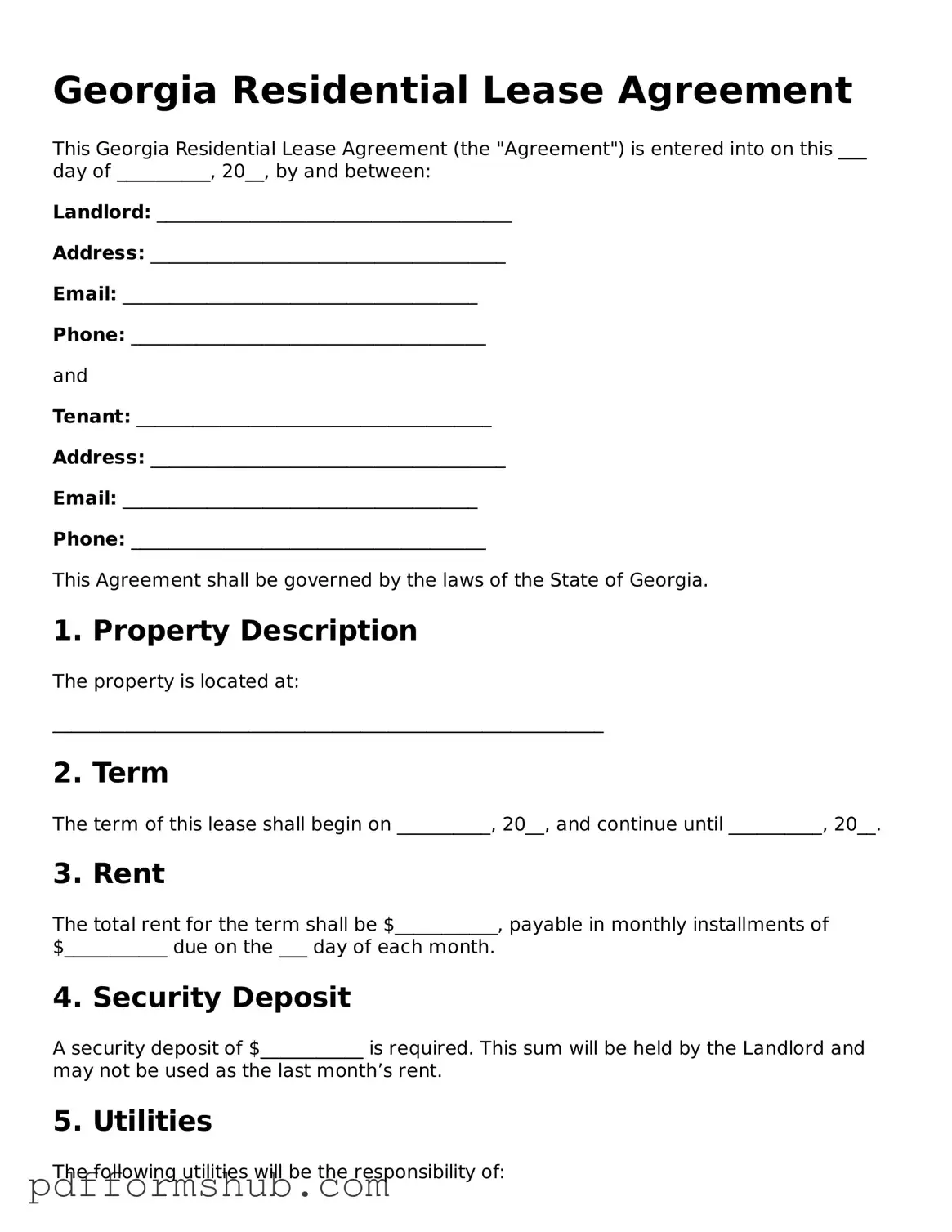Attorney-Verified Residential Lease Agreement Form for Georgia State
The Georgia Residential Lease Agreement is a legally binding document that outlines the terms and conditions between a landlord and tenant for renting a residential property in Georgia. This form serves to protect the rights of both parties, ensuring clarity and mutual understanding regarding rental obligations. To get started on securing your rental agreement, fill out the form by clicking the button below.
Customize Form

Attorney-Verified Residential Lease Agreement Form for Georgia State
Customize Form

Customize Form
or
Free PDF Form
Short deadline? Complete this form now
Complete Residential Lease Agreement online without printing hassles.